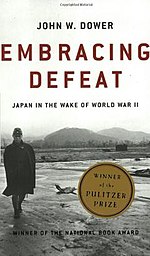
The Supreme Commander for the Allied Powers, or SCAP, was the title held by General Douglas MacArthur during the United States-led Allied occupation of Japan following World War II. It issued SCAP Directives to the Japanese government, aiming to suppress its "militaristic nationalism". The position was created at the start of the occupation of Japan on August 14, 1945. It was originally styled the Supreme Commander of the Allied Powers.
Sangokujin is a Japanese term referring to the various former colonial subjects of the Empire of Japan in the aftermath of World War II. This term particularly applied to Koreans and Taiwanese people, although it also sometimes was used for Ryukyuan people. The term is now generally considered antiquated and offensive.
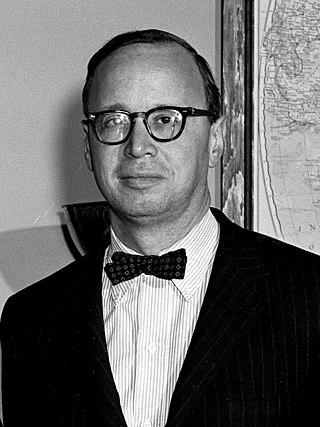
Arthur Meier Schlesinger Jr. was an American historian, social critic, and public intellectual. The son of the influential historian Arthur M. Schlesinger Sr. and a specialist in American history, much of Schlesinger's work explored the history of 20th-century American liberalism. In particular, his work focused on leaders such as Harry S. Truman, Franklin D. Roosevelt, John F. Kennedy, and Robert F. Kennedy. In the 1952 and 1956 presidential campaigns, he was a primary speechwriter and adviser to the Democratic presidential nominee, Adlai Stevenson II. Schlesinger served as special assistant and "court historian" to President Kennedy from 1961 to 1963. He wrote a detailed account of the Kennedy administration, from the 1960 presidential campaign to the president's state funeral, titled A Thousand Days: John F. Kennedy in the White House, which won the 1966 Pulitzer Prize for Biography or Autobiography.
John W. Dower is an American author and historian. His 1999 book Embracing Defeat: Japan in the Wake of World War II won the U.S. National Book Award for Nonfiction, the Pulitzer Prize for General Nonfiction, the Bancroft Prize, the Los Angeles Times Book Prize, the Mark Lynton History Prize, and the John K. Fairbank Prize of the American Historical Association.

Alan Shaw Taylor is an American historian and scholar who, most recently, was the Thomas Jefferson Memorial Foundation Professor of History at the University of Virginia. A specialist in the early history of the United States, Taylor has written extensively about the colonial history of the United States, the American Revolution, and the early American Republic. Taylor has received two Pulitzer Prizes and the Bancroft Prize, and was also a finalist for the National Book Award for non-fiction. In 2020 he was elected to the American Philosophical Society.
The Pulitzer Prizes for 2000 were announced on April 10, 2000.
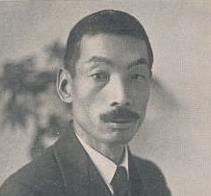
Hajime Kawakami was a Japanese Marxist economist of the Taishō and early Shōwa periods.

The Instructions for the Battlefield was a pocket-sized military code issued to soldiers in the Imperial Japanese forces on 8 January 1941 in the name of then-War Minister Hideki Tojo. It was in use at the outbreak of the Pacific War.
Constitution Memorial Day is a public holiday in Japan. It takes place on May 3 in celebration of the enactment of the 1947 Constitution of Japan. It is a part of the collection of holidays known as Golden Week.

Our Job in Japan was a United States military training film made in 1945, shortly after World War II. It is the companion to the more famous Your Job In Germany. The film was aimed at American troops about to go to Japan to participate in the 1945–1952 Allied occupation, and presents the problem of turning the militarist state into a peaceful democracy. The film focused on the Japanese military officials who had used the traditional religion of Shinto, as well as the educational system, to take over power, control the populace, and wage aggressive war.

Jun Kawada was a Japanese tanka poet and entrepreneur active during the Shōwa period of Japan.

The book Shattered God: A Diary of a Demobilized Soldier is a diary of the events that started with the surrender of Japan at the end of World War II, written by Watanabe Kiyoshi. It was published by Iwanami Shoten Publishing in 1983, after the author's death.

Kumazawa Hiromichi, also known as the "Kumazawa emperor", was a Japanese businessman and Buddhist priest from Nagoya who publicly disputed the legitimacy of Emperor Hirohito's bloodline in the period shortly after the end of the Second World War. He claimed to be the 19th direct descendant of Emperor Go-Kameyama.
Harold Gould Henderson (1889–1974) was an American academic, art historian and Japanologist. He was a Columbia University professor for twenty years. From 1948 through 1952, he was the President of the Japan Society in New York, and in 1968 he cofounded the Haiku Society of America.
Louis Rudolph Harlan was an American academic historian who wrote a two-volume biography of the African-American educator and social leader Booker T. Washington and edited several volumes of Washington materials. He won the Bancroft Prize in 1973 and 1984, once for each volume, and the 1984 Pulitzer Prize for Biography or Autobiography for the second volume.
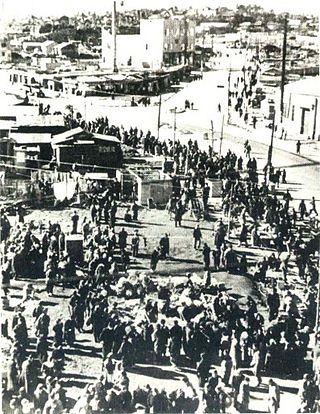
The Shibuya incident was a violent confrontation which occurred in June 1946 between rival gangs near Shibuya Station in Tokyo, Japan. The years after World War II saw Japan as a defeated nation and the Japanese people had to improvise in many aspects of daily life. In the chaos of the post-war recovery, large and very lucrative black markets opened throughout Japan. Various gangs fought for control over them. There were also many non-Japanese "third nationals" in post-war Japan. These "third nationals" or "third-country people" were former subjects of the Empire of Japan whose citizenship then transferred to other countries like China and Korea. The Shibuya incident involved former Japanese citizens from the Japanese province of Taiwan fighting against native Japanese Yakuza gangs. After the fight, the Chinese nationalist government stepped forward to defend the Taiwanese.
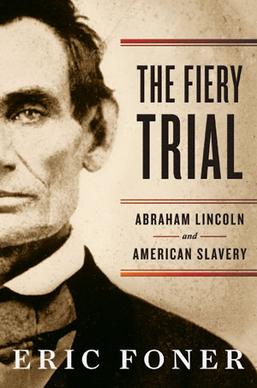
The Fiery Trial: Abraham Lincoln and American Slavery is a historical non-fiction book written by American historian Eric Foner. Published in 2010 by W. W. Norton & Company, the book serves as a biographical portrait of United States President Abraham Lincoln, discussing the evolution of his stance on slavery in the United States over the course of his life. The Fiery Trial, which derives its title from Lincoln's Annual Message to Congress of December 1, 1862, was the 22nd book written by Foner, the DeWitt Clinton Professor of History at Columbia University. It was praised by critics and won the 2011 Pulitzer Prize for History, the Bancroft Prize, and the Lincoln Prize.
The New Press is an independent non-profit public-interest book publisher established in 1992 by André Schiffrin and Diane Wachtell, publishing many books with a left-wing, but increasingly conservative political viewpoint.
Appeal to the People or An Appeal to the People was a document written by communists in Shōwa era Imperial Japan in Fuchu Prison. It was issued after their release on October 10, 1945, a month after the Surrender of Japan on September 2, 1945.
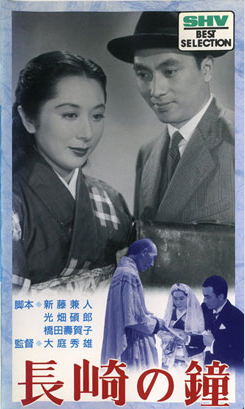
The Bells of Nagasaki is a 1950 film adaptation of the 1949 book of the same name by Takashi Nagai. It was directed by Hideo Ōba and was released September 23, 1950.
